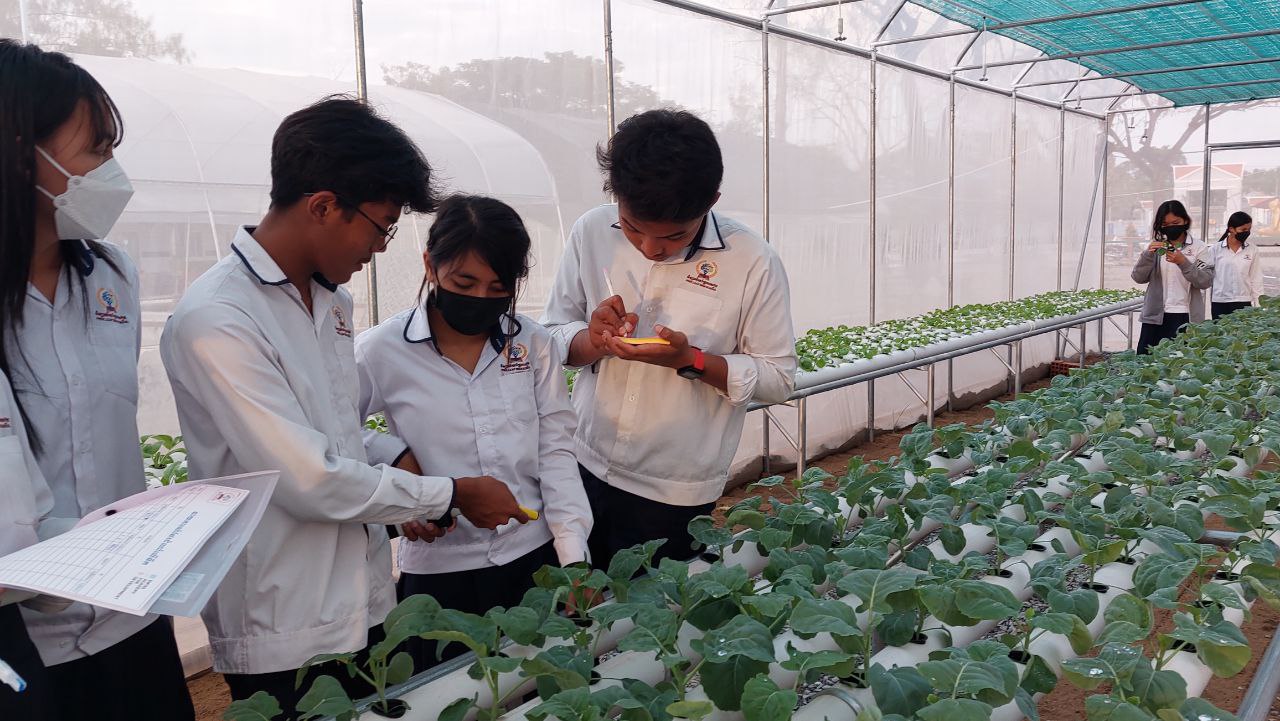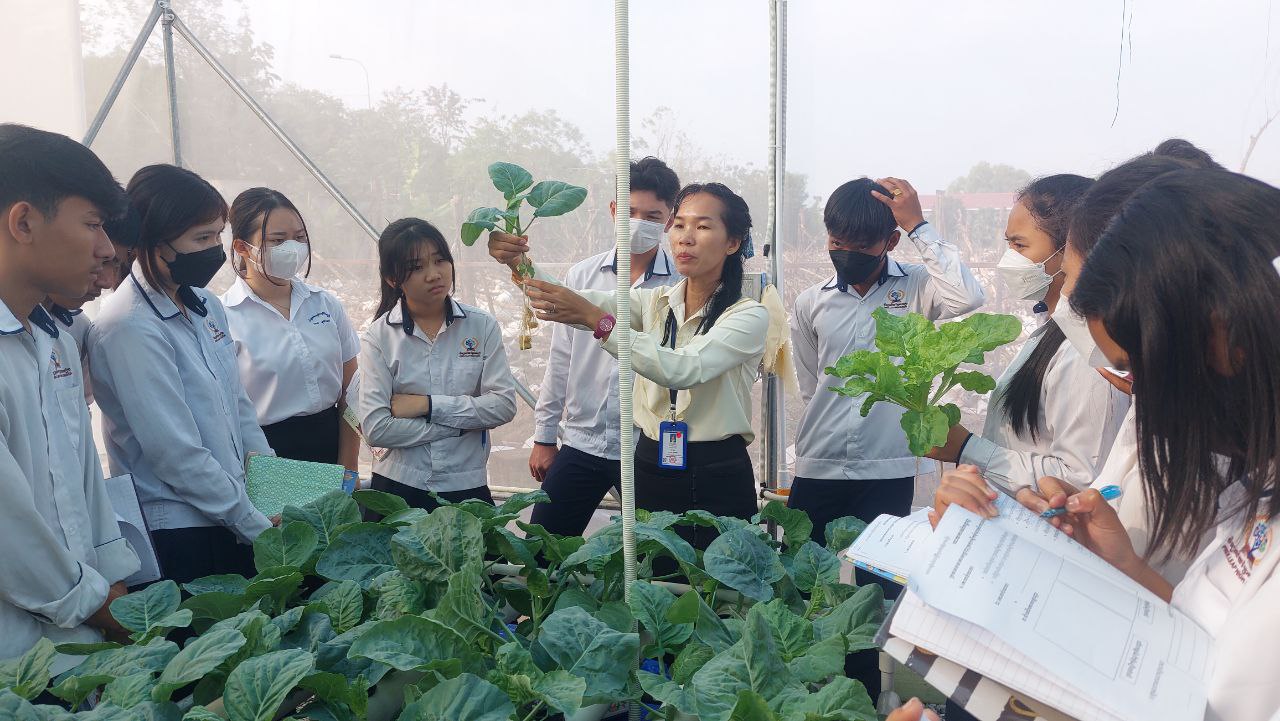CAMBODIA IS ONE OF THE LEAST DEVELOPED COUNTRIES IN SOUTHEAST ASIA, AND GLOBALLY. WHEREAS NATIONWIDE GREAT PROGRESS HAS BEEN MADE IN TERMS OF ALPHABETISATION AND COMPLETION AT THE PRIMARY SCHOOL LEVEL, MANY YOUNG PEOPLE LEAVE SCHOOL DURING OR BEFORE STARTING SECONDARY LEVEL. AMONG OTHER REASONS, THIS IS DUE TO INADEQUATE QUALITY AND THE LACK OF RELE¬VANCE OF EDUCATION FOR THE LABOUR MARKET.
In addition, weak agricultural yields and the resulting high food insecurity have caused many families to move to (peri)urban areas in recent years. As a consequence, the supply of jobs in the industry can no longer keep up with the rising demand for labor. As a result, the unemployment rate in urban areas is now higher than in rural areas. Young Cambodians are particularly affected by this.
HIGH-QUALITY AND FUTURE-RELEVANT EDUCATION FOR STUDENTS
On the other hand, there is a lot of potential for innovative and sustai¬nable agriculture in peri-urban regions – to improve food security and income generation. The overall goal of this project, which is implemented together with the Prek Leap New Generation (Secondary and High) School, is to contribute to food security and to a high-quality and future-relevant education for students from the peri-urban area around Cambodia’s capital Phnom Penn.
CONSTRUCTION AND APPLICATION AND CURRICULUM INTEGRATION OF AGRICULTURAL AND WATER PURIFICATION SYSTEMS
The project is based on the construction of simple agricultural infrastructure and water purification systems at the school. Specifically, solar-powered hydroponic systems, a screenhouse, a fish pond and a small drinking water purification system will be built. Teachers receive training in the use and teaching of the systems, which are integrated into the school curriculum through a variety of subjects. In this way, the students acquire knowledge and skills in the sustainable cultivation and processing of food as well as the systematic purification of drinking water. In addition, the secondary school lessons become more relevant to everyday life, which increases the general motivation to learn and makes it easier for weaker students in particular to acquire knowledge and skills.
ENTREPRENEURIAL EDUCATION – ALSO IN THE INTEREST OF PROJECT SUSTAINABILITY
The students and especially the young women of the high school are additionally offered training in basic entrepreneurial knowledge, which is in line with the overall project and focuses on the marketing of sustainably produced and processed agricultural products. Intra-school consumption via the canteen as well as the marketing of suitable food products should also contribute to the financial sustainability of the project in the long term. Knowledge and experience will be shared with parents and other schools.
SPORT- AND PLAY-BASED LEARNING METHODS
Methodologically, the validated SA4D approach of interactive and play-based learning methods is used for future-relevant teaching, which also contributes to quality education for all.


